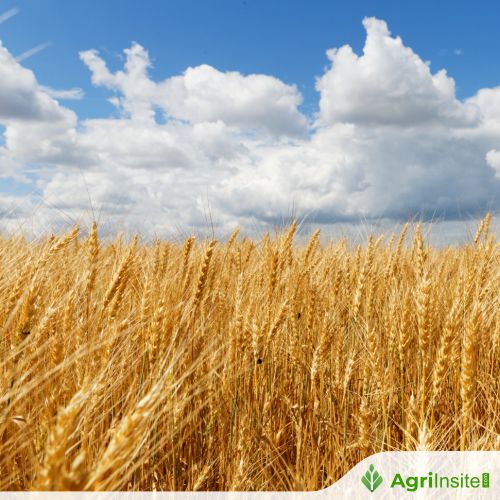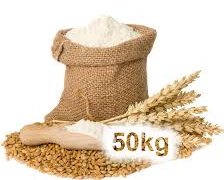Pakistan Risks Its Food Security By Not Setting A Support Price For Wheat

Pakistan’s wheat support price is crucial for food security and protecting small farmers from market volatility. Without it, falling prices—now Rs. 2,400 per 40kg—leave farmers unable to cover production costs. Large farmers can store wheat; small farmers cannot. Public distribution systems like USC and PASSCO are vital for stabilising prices and preventing over-reliance on imports amid limited foreign reserves.
The wheat support price helps the farming community cover the cost of production. In the age of financial globalisation, higher international wheat prices translate into high domestic prices as the trade regime is open. In such an open trade regime, wheat prices fluctuate. There is a pressing need to understand the behaviour of wheat prices. Even a slight variation in demand can cause wheat prices to fluctuate. When demand is high, prices rise; when demand decreases, prices fall.
In times of high prices, large farmers benefit the most as they have access to resources and storage facilities. Medium-sized farmers benefit as well, but small farmers and petty producers gain the least, as they lack the bargaining power to negotiate with intermediaries. If demand for wheat falls, prices decline. Additionally, bumper crops and surplus supply also contribute to plunging prices.
In such a situation, large farmers can afford to hold and store their stock, but small farmers bear the brunt. A price crash impacts small farmers the most. They fall into debt and distress, with few means of escape from this debt trap. The support price provides essential incentives for small and medium farmers to grow crops that are vital to the economy. Adequate wheat production plays a pivotal role in maintaining national food security.
If farmers suffer losses year after year, they are likely to switch to other crops. Without a wheat support price, there is a high probability that the area under wheat cultivation will shrink in the coming years. This is dangerous for a developing economy.
The cultivated wheat production has dropped to 28 million tonnes this year. Despite water scarcity in the outgoing winter, wheat production and supply remained adequate. However, international wheat prices fell by around 9% from March to June 2025. Domestic wheat prices dropped from Rs. 2800 to Rs. 2200 per 40 kg due to the absence of a support price. Food grain prices affect around 70% of Pakistan’s population, and when prices become volatile, the government relies on its public distribution system to stabilise them
The wheat support price is vital for promoting food security. Given the size and structure of Pakistan’s economy, the only viable option for policymakers is to promote domestic wheat production. Some economists, analysts and media commentators argue that food shortages can be met through imports. This is a risky and shortsighted strategy.
Many African countries adopted this approach by switching to cash crops, only to experience famines due to insufficient food grain stocks. The best way to maintain buffer stock is through domestic crop production and supply. Since Pakistan’s economy does not generate surplus dollars, domestic food supply is indispensable.
Imagine a scenario where foreign exchange reserves decline and a wheat shortage emerges—then the government would be forced to import wheat to maintain food security. This would put further pressure on the country’s foreign exchange reserves.
The government currently holds a buffer stock of wheat. The Pakistan Agricultural Storage and Services Corporation (PASSCO) was established in 1973 to procure and store major and minor crops to ensure price stability. Despite various challenges, it has remained an effective institution, supplying and releasing adequate stocks to deficit provinces, the armed forces and the Utility Stores Corporation (USC) in times of need.
PASSCO’s storage is scattered across Punjab and Khairpur in Sindh. It continued procuring and storing wheat until 2024, helping to stabilise market prices. When domestic prices rise, the visible hand of the government releases buffer stocks to lower them, thereby achieving price stability.
Food grain prices affect around 70% of Pakistan’s population, and when prices become volatile, the government relies on its public distribution system to stabilise them. Here, the Utility Stores Corporation plays a critical role. The USC has long served as a price stabiliser during drastic swings in grain prices and provides subsidies during Ramzan.
The USC expanded until 2018, partly due to political economy considerations. At its peak, it operated over 6000 outlets with a workforce of more than 14,000. However, in the name of restructuring, successive regimes have scaled back its operations. The number of outlets has been reduced to just over 4000, and the workforce has shrunk to around 8000.
The government intends to further scale back USC operations. However, its countrywide presence and outreach play a dynamic role in stabilising prices. There is a need to introduce greater flexibility in USC’s operations. Leaving wheat crops entirely to market forces will only deepen the miseries of farmers in Pakistan.
It is being widely reported in print, electronic, and social media that wheat prices have reached Rs. 2400 per 40 kg due to the intervention of local investors and middlemen (arthis). These investors fail to offer a fair price for the farmers’ hard work. The current price still falls short of covering production costs. In the absence of a support price, farmers’ livelihoods are at risk.
In a nutshell, the wheat support price and the public distribution system work hand in hand to safeguard food security in the country. This system is also a lifeline for the poor, sustaining their livelihoods. Leaving this system to market forces would only further concentrate economic power in the hands of financial capitalists. There is a need to devise a more flexible, responsive system to ensure the farming community can at least recover their production costs. Let us now observe how policymakers respond to the emerging challenges in this era of financial globalisation.
To Read more about Wheat News continue reading Agriinsite.com
Source : The Friday Times
















